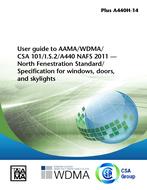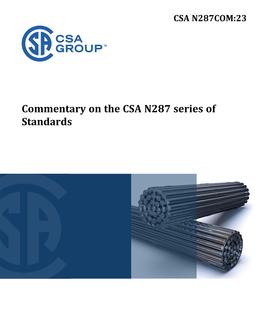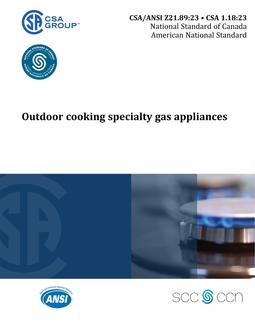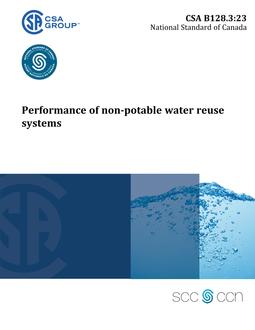
CSA Plus A440H-14
- Comments Off on CSA Plus A440H-14
- CSA
Preface
This is the first edition of the User guide to AAMA/WDMA/CSA 101/I.S.2/A440, NAFS – North American Fenestration Standard/Specification for windows, doors, and skylights. It is jointly published by the American Architectural Manufacturers Association (AAMA), the Window & Door Manufacturers Association (WDMA), and CSA Group. Throughout this user guide, AAMA/WDMA/CSA 101/I.S.2/A440, NAFS will be referred to simply as “NAFS”. This user guide was developed as a non-mandatory, advisory document and is published as a public service. AAMA, CSA Group, WDMA, the individual members of the CSA Technical Committee on Performance Standard for Windows, and the U.S.A./Canada Joint Document Management Group (JDMG) disclaim all liability for the use, application, or adaptation of the material published in this user guide. In the event of any conflict between this user guide and NAFS, the provisions of NAFS prevail. Intended users of NAFS include code officials, manufacturers, architects, engineers, consumers, builders, contractors, trade associations, test labs, specifiers, and government agencies. This user guide is intended to provide those users with guidance for the proper application of NAFS. It contains informative commentary, illustrations, and examples to help answer some of the more common questions associated with NAFS. Two fundamental applications for NAFS are product comparison and code compliance. AAMA, CSA Group, and WDMA intend for NAFS to be referenced in U.S. International Building Codes and in the National Building Code of Canada. NAFS presents provisions addressing fenestration product requirements, under the control of the unit manufacturer, contained in those codes. CSA A440S1-09, Canadian Supplement to AAMA/WDMA/CSA 101/I.S.2/A440, NAFS – North American Standard/Specification for windows, doors, and skylights, provides additional requirements to NAFS for compliance in Canada. The Canadian Supplement is considered suitable for use for conformity assessment within the stated scope of NAFS. The Canadian Supplement was prepared by the CSA Technical Committee on the Performance Standard for Windows, under the jurisdiction of the Strategic Steering Committee on Building Products and Systems, and has been formally approved by the Technical Committee.
Scope
1.1 General NAFS applies to both operating and fixed, new construction and replacement windows, doors, SSPs, TDDs, roof windows, and unit skylights installed into exterior building envelopes. NAFS establishes material-neutral, minimum, and optional performance requirements for these products. NAFS concerns itself with the determination of Performance Grade (PG), design pressure (DP), and related performance ratings for them. Performance requirements are used in NAFS when possible. Prescriptive requirements are used when necessary. When products are tested to the gateway requirements, or to the gateway and optional requirements, a rating is determined and a test report may be issued. Certification procedures are not part of NAFS. NAFS applies to testing and rating products. The tested rating applies to products of identical construction, with width and height less than or equal to the tested size. Various systems have been developed or are proposed for determining a product energy rating based on such factors as U-factor, solar heat gain coefficient, condensation resistance, and visible transmittance (visible light transmission). These rating systems are beyond the scope of NAFS. Fenestration products not intended to be tested to NAFS include: (a) interior windows, interior accessory windows (IAWs), and interior doors; (b) vehicular-access doors (garage doors) (See ANSI/DASMA 105, ANSI/DASMA 108, ANSI/DASMA 109, ANSI/DASMA 115, or other applicable DASMA Specifications); (c) roof-mounted smoke and heat-relief vents; (d) sloped glazing (other than unit skylights or roof windows) (See AAMA TIR A7); (e) curtain walls and storefronts (See AAMA MCWM-1); (f) folding door systems; (g) commercial entrance systems (See AAMA SFM-1); (h) sunrooms (See AAMA/NPEA/NSA 2100); (i) revolving doors; and (j) commercial steel doors rated per SDI A250.8. The reference Standards and technical publications specified in NAFS Clause 1.1 for products not within the scope of NAFS are for the convenience of the reader and are not intended to be considered complete or all-inclusive. These products are excluded for a variety of reasons, such as: no demonstrated need, lack of standardization or representation, redundancy with other standards, etc. 1.2 Terminology In NAFS, “shall” is used to express a requirement, i.e., a provision that the user is obliged to satisfy in order to comply with NAFS; “should” is used to express a recommendation or that which is advised but not required; “shall be permitted to be” is used to express an option or that which is permissible within the limits of NAFS; and “can” is used to express possibility or capability. Notes accompanying clauses do not include requirements or alternative requirements; the purpose of a note accompanying a clause is to separate from the text explanatory or informative material. Notes to tables and figures are considered part of the table or figure and are written as requirements. Legends to equations and figures are considered requirements. Annexes are designated normative (mandatory) or informative (non-mandatory) to define their application. 1.3 Units of measurement The values given in SI (metric) units are the standard. The values given in parentheses are for information only. The values given in parentheses are in IP (inch-pound) units and are often inexact rounded values. Users of NAFS will test only to the SI values or to exact conversions of the SI values. See CAN/CSA-Z234.1 or IEEE/ASTM SI 10 for conversion factors and rounding procedures that should be used in connection with testing. It is the policy of AAMA, CSA Group, and WDMA that all Standards developed by the associations use SI primary units, with IP units furnished for reference as necessary. This is consistent with Canadian and U.S. regulations for standardization of measurements. “In 1998 the Metric Conversion Act was amended to designate “the metric system of measurement as the preferred system of weights and measures for United States trade and commerce”. With the increasing importance of the global marketplace, it has become imperative for U.S. industry to extend its use of SI and for U.S. citizens to gain a working knowledge of this modern metric system” (IEEE/ASTM SI 10). SI has been the official measurement system for Canada for a long time. It therefore makes sense that the primary units of measurement in NAFS are SI. The proper use of SI values and the conversion of SI values to IP values are outlined in CSA Z234.1 and IEEE/ASTM SI 10. These guidelines address both the base conversion of units but also the precision of the conversion. This process is not complicated for values that do not have limits such as maximums, minimums, and tolerances. However, in NAFS some requirements do require such limits. The values shown in NAFS have been converted according to the rules of the two referenced Standards. The conversions have sometimes been modified to meet the needs of expressing maximums, minimums, and tolerances. Consequently, NAFS users are advised that if they use the IP units provided for reference purposes, the onus is on them to determine the accuracy and appropriateness of the IP values for compliance with NAFS. The single exception to using SI values in NAFS is in the Performance Grade (PG) portion of the product designation. Here the nominal Performance Grades (PG) have been maintained as they were originally developed when the primary units of the predecessors to NAFS were in the IP system. This has been done as a convenience reflecting the acceptance of these nominal rating values in the architectural marketplace. The requirements for developing and specifying Performance Grades (PG) are provided as required in the body of NAFS. In all other instances the units of measurement and compliance are SI.
Product Details
- Edition:
- 1st
- Published:
- 04/01/2014
- ISBN(s):
- 9781771396066
- Number of Pages:
- 102
- File Size:
- 1 file , 2.3 MB
- Product Code(s):
- 2423129, 2423129, 2423129



